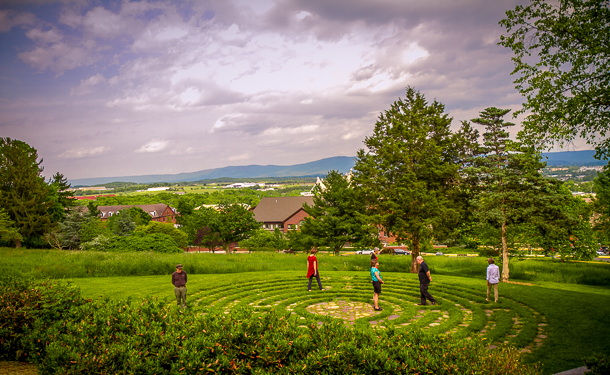Forty-three institutions are described in the updated, online “College Guide to Peace Studies Programs,” a listing of American and Canadian colleges and universities that offer degrees in which the study of peace is oriented toward understanding the psychological and socio-economic roots of harmful conflict.
For years, it has been easy to find law schools and nursing schools in North America, but not so easy to locate schools specializing in the study of conflict and peacebuilding.
The site, located at peacecolleges.com, has received an average of 15 daily hits since its launching in 2013. Schools listed in the guide were given the opportunity to update their listings in the summer of 2015.
The site is hosted by Eastern Mennonite University, with support from the Center for Justice and Peacebuilding (CJP).
“Peacecolleges.com is always a work in progress,” says CJP Executive Director J. Daryl Byler. “The site is an important resource for those investigating the possibility of working in peace and justice studies, and we’re pleased to offer this opportunity to all colleges and universities that foster the training and education of future peacebuilders.”
Peacecolleges.com does not list “security studies” programs that “focus disproportionately on conflict analysis and do not take an explicit peace stance.” It also does not include some programs in criminal justice and mediation, “because of their narrower focus on the legal system.”
The website was developed in 2013 by former EMU editor-in-chief Bonnie Price Lofton, a graduate of CJP and founder of the center’s Peacebuilder publication. She noted that major college guides highlighted “colleges that offered niche programs like ones for horseback riders or for a ‘semester at sea,’ but would ignore or incorrectly report on peace study programs.”
As an academic discipline, peace studies is a relatively young field, according to the website. “Interdisciplinary in its earliest stage of development, peace studies initially borrowed heavily from the social sciences to analyze and understand the nature and roots of conflict,” says the guide. “It is now recognized as a field in its own right, with theorists and academicians who began their careers and remain in the field of conflict studies and practice.”
More than half of the 40 programs listed on the site are housed in relatively small, private institutions. This likely reflects the long-held interest in peace work by certain religious peoples who founded colleges now offering peace studies, including Mennonites, Quakers, Church of the Brethren members, and a segment of Roman Catholics and mainline Protestants.
The orientation of the programs is highly variable, however, with some placing great emphasis on practical skills and experiential learning, and others mainly focusing on the study of the philosophy of nonviolence.
Peacecolleges.com is searchable by name of institution, geographical region, type of institution (public, private, small, medium or large), and type of degree offered.
